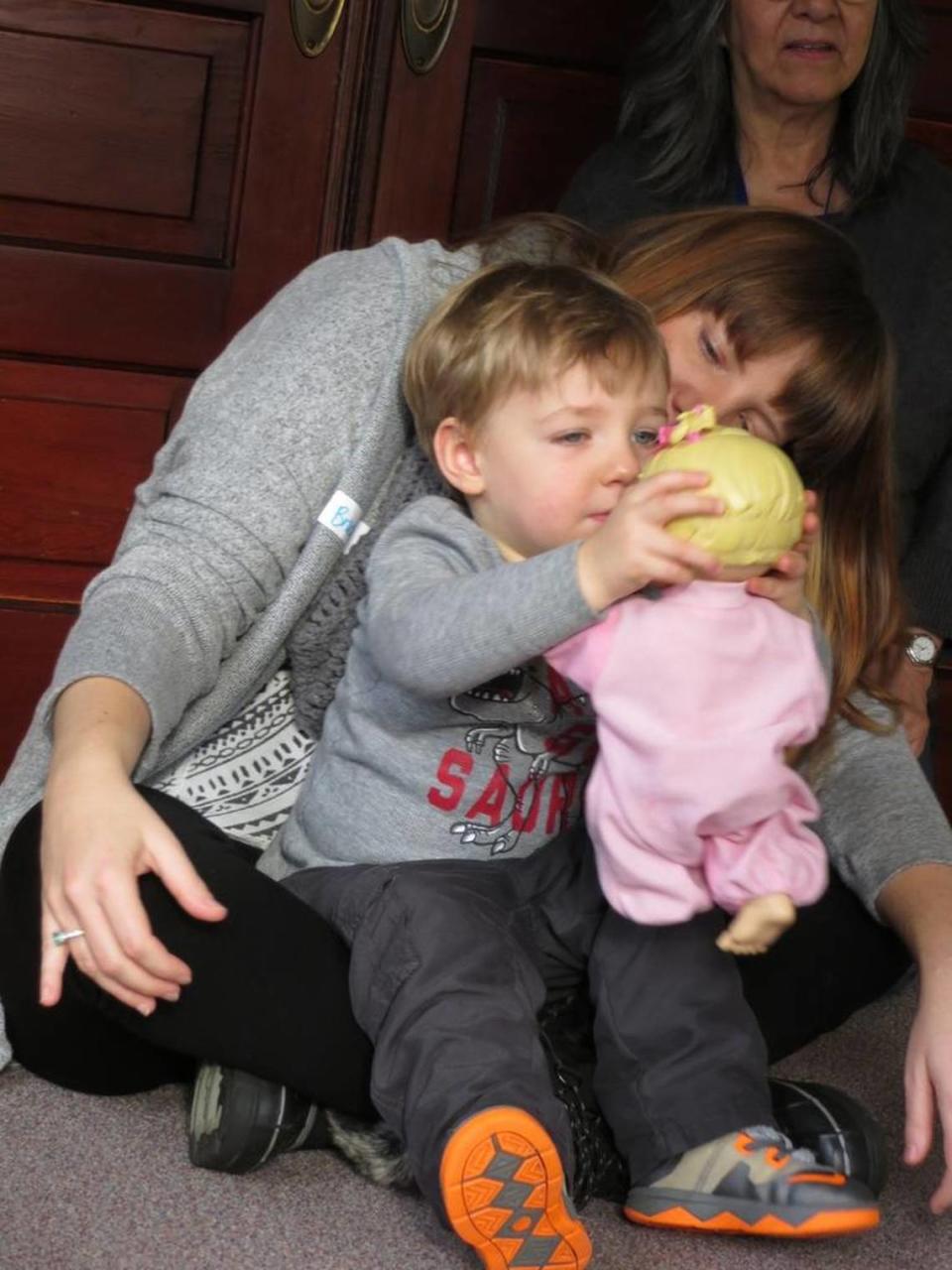How a small Bellingham nonprofit got part of MacKenzie Scott’s $640 million donation spree
Sierra James is the executive director of the Whatcom Center for Early Learning, a Bellingham nonprofit that provides support services for children with developmental delays and disabilities. But she wasn’t the first on her staff to find out that the nonprofit had earned a $2 million grant.
“I found out from my development director because (the) email had gone to my junk mail. I couldn’t believe it, I was just like, ‘No way,’” James said.
The spam filter on James’ email account can be forgiven, but for once, an email essentially saying “here’s $2 million, no strings attached” was legitimate.
WCEL applied for the grant, part of a $640 million series of donations made by Amazon billionaire MacKenzie Scott and her Yield Giving organization, last year. Scott held an “open call” for organizations to apply for 250 $1 million grants last March. Yield received over 6,000 applicants, but after what James called an “intensive process” that included a video pitch and peer reviews, the Bellingham-based nonprofit was shortlisted.
“But we still thought it was a pretty slim chance because it was a whole, national-level grant and we’re just this little nonprofit here in Whatcom County,” James said.
The nonprofit not only earned a grant, it was one of 279 awarded $2 million, after Scott and Yield were so impressed with the candidates that they decided to double the donations. For context, WCEL’s annual budget is roughly $4 million according to James.
“It was kind of mind blowing that we applied for $1 million and got two,” James said. “You know, we thought $1 million was a longshot.”
What WCEL does
WCEL, which has existed in some form for over 50 years ago before taking its current nonprofit model in the 1990s, didn’t have to apply with a specific plan for how they would use the money. They just had to sell Yield Giving on their mission as a whole.
“Eighty-five percent of brain development happens before a child turns three,” James said, though some estimates put that number closer to 80%. “So it’s a really key, important time. And people yet, they don’t know that these services exist, and they don’t know to get their kids into them.”
The organization sends professionals — from speech pathologists to occupational therapists — into the homes of children up to the age of 3 with physical and intellectual disabilities, to provide the support they need. It also hosts classes for children up to the age of 5, some of which are designed just for children with disabilities, and some of which include children without disabilities to create a more school-like environment.

How they plan to use the money
Before anything else, James said WCEL plans to invest the money and use the interest to fund its existing operation.
“Right now, we’ve put the money straight into investments, so that’s like $100,000 a year that we can use toward our mission,” James said. “That’s every nonprofit’s dream.”
That doesn’t mean WCEL has no plans for the money, though. The nonprofit operates out of three converted houses, one in the Lettered Streets area, one in Cordata and one in Ferndale. James said the grant money will go a long way towards eventually starting on a custom-built space that is tailored to their needs.
“We worked a lot out of, historically, different church basements,” James said. “And recently we have locations, but they’re homes that have been converted into offices, one of them was donated to us. So it’s not always well-suited for the work we do.”
In the shorter term, James said the money will help WCEL become more accessible. The number of kids in its programs that require translation services has doubled in the past three years. James hopes to use the grant money to roll out a more expansive language access program and produce informational videos in different languages documenting the benefits of the program.
That’s all part of WCEL’s greater focus on making its services accessible to all, something James said sets it apart from other early support programs.
“It’s only if their pediatrician notices something. So a lot of kids end up missing out on this, and that’s particularly the case for kids that are Black and Latinx,” James said. “Seventy-eight percent of kids that are Black and Latinx nationwide do not get into early support services as compared to their white peers.”
James said parents are often scared off by the “disability” label, making outreach even more important.
“A lot of people, it kind of feels hard at first to want to say yes to services, because they’re not sure about someone coming into their home,” James said. “Once they do it, they end up loving it, they want their next kid to get in, but it’s a hard thing to be like, ‘Oh, maybe my kid has a disability.’”
The organization also needs the money to cover its rapid growth, which James said was spurred by the pandemic’s effect on child development.
“Last year, we had the biggest growth we’ve ever had in a single year,” James said. “We had 25% growth in kids needing our services. And we’re not allowed by the state to turn kids away, we have to say yes. So we had to just pivot, and grow as needed.”
Beyond any specific project, James said she expects the grant to raise WCEL’s profile and make donations easier to come by.
“Sometimes it’s really hard for small nonprofits like us because a lot of the big donors are invite-only,” James said. “So my understanding is that if we can get synergy around this, that then some of those closed doors can open for us.”

